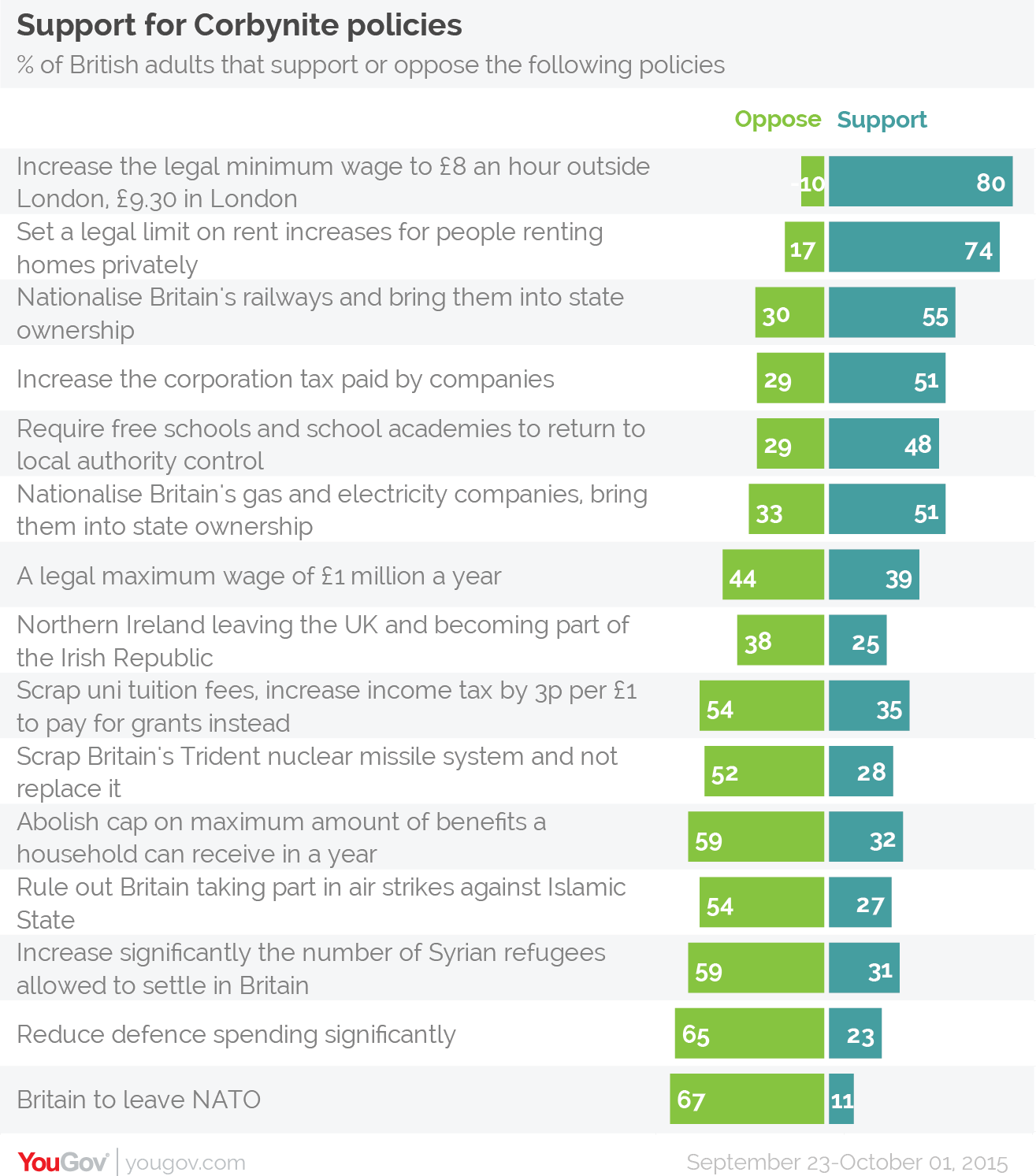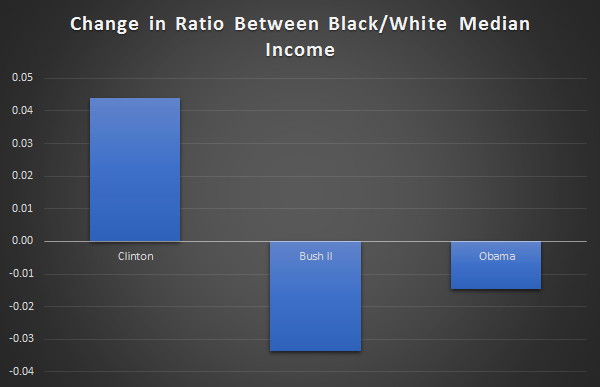The other day, I ran across a piece on Vox by Zach Beauchamp entitled “No easy answers: why left-wing economics is not the answer to right wing populism.” This piece captures everything that has always bothered me about Vox. Today I’d like to dissect this piece and show you what I mean.

Beauchamp presents his vision of what the left is saying:
A legion of commentators and politicians, most prominently in the United States but also in Europe, have argued that center-left parties must shift further to the left in order to fight off right-wing populists such as Trump and France’s Marine Le Pen. Supporters of these leaders, they argue, are motivated by a sense of economic insecurity in an increasingly unequal world; promise them a stronger welfare state, one better equipped to address their fundamental needs, and they will flock to the left.
Against this, he argues:
The problem is that a lot of data suggests that countries with more robust welfare states tend to have stronger far-right movements. Providing white voters with higher levels of economic security does not tamp down their anxieties about race and immigration — or, more precisely, it doesn’t do it powerfully enough. For some, it frees them to worry less about what it’s in their wallet and more about who may be moving into their neighborhoods or competing with them for jobs.
Take Britain’s Labour Party, which swung to the populist left by electing Jeremy Corbyn, a socialist who has proposed renationalizing Britain’s rail system, as its leader in 2015. The results have been disastrous: the Brexit vote in favor of leaving the European Union, plummeting poll numbers for both Corbyn and his party, and a British political scene that is shifting notably to the right on issues of immigration and multiculturalism.
The rest of the piece is largely an elaboration of these claims–Beauchamp provides lots of evidence that right wing parties are popular in European states with large welfare states while left wing parties have declined, and he provides lots of evidence that Corbyn is not doing well in the polls.
I have no problem with any of the facts Beauchamp lays down, but he leaves a lot of things out of his discussion and his interpretations of the facts leave much to be desired. Here are a few of the problems:
All of these European states have seen inequality expand significantly in recent decades, and the left wing parties have aided and abetted this.
Top 1% share has increased by 20% in the Netherlands since 1993, by nearly 28% in France since 1983, by 57% in Germany since 1995, by 82% in Sweden since 1981, and by 122% in the UK since 1978. The welfare states in these countries are not stable–they have gradually been eroded, and European left wing parties have played roles in their erosion. Left wing parties have overseen large increases in inequality, they’ve passed deregulation, they’ve attempted to weaken European labor laws, and so on. In Germany, it was the center-left Social Democratic Party which passed the Hartz reforms in the 00s which cut social assistance and weakened labor laws–it oversaw the largest increase in German inequality since the 30s. In France, it was Mitterrand’s Socialist Party that embraced fiscal restraint in the 80s when inequality began rising there, and it was that same Socialist Party which just recently attempted to copy Germany’s labor market reforms. In Britain inequality began rising when a Labour government accepted an IMF loan in exchange for making spending cuts, and inequality rose nearly as rapidly under Labour from 1997 to 2007 as it had under the Conservatives in the 80s and early 90s. So when Beauchamp points out that these parties have lost vote share and implies this is because they’re left wing, the truth is that over the same period during which they’ve lost vote share they’ve largely migrated to the right.
Beauchamp ignores this history completely, repeatedly treating the center-left parties as if they were defenders of the welfare state rather than participants in its unravelling:
This creates a puzzle: Why did voters who by and large benefit from social democracy turn against the parties that most strongly support it?
It’s a hard question to answer if you believe people cast their ballots principally on the basis of their perceived economic interests.
Most Europeans have little reason to think that the traditional left wing parties defend their economic interests anymore. This chronic problem is worsened by an acute problem…
Since the economic crisis, European states have been doing more austerity than ever, and governments have deflected criticism for declining public services by targeting immigrants, refugees, and Muslims.
Take Britain, for example, which has been starving its National Health Service, attempting to cut spending to 7% of GDP by 2021:

This has produced hospital overcrowding, doctor shortages, and long wait times. The government has deflected criticism by blaming immigrants for putting excess strain on the health service. During the Brexit campaign, British people were promised that leaving the EU would improve the NHS in two different ways:
- Leaving the EU would put a stop to “mass uncontrolled immigration” and relieve the strain on the service.
- The money the UK currently pays into the EU could instead be spent on the NHS.
This second promise was such a vote winner that they stuck it on the side of the Leave campaign bus:

British people have been convinced that it is the far right, not the left, which defends the welfare state, because they believe the threat to the welfare state comes from international institutions like the EU and from foreigners and immigrants. The refugee crisis has put immigration front and center and drawn even more attention to this argument. Left wing parties have historically supported immigration and many Europeans see support for immigration as directly conflicting with supporting the welfare state.
Beauchamp doesn’t understand the connection between immigration and economics. Instead, he offers this:
Ironically, that could be because the European left is the victim of its own success. Ronald Inglehart, an eminent political scientist at the University of Michigan, argues that the combination of rapid economic growth and a robust welfare state have provided voters with enough economic security that they could start prioritizing issues beyond the distribution of wealth — issues like abortion, same-sex marriage, and, most crucially, immigration.
So it’s not that European social democrats failed to sell their economic message, or that economic redistribution became unpopular. It’s that economic issues receded in importance at the same time as Europe was experiencing a massive, unprecedented wave of nonwhite, non-Christian immigration.
Immigration is not a social issue like abortion or same-sex marriage. Europeans see it as directly tied to economics–immigrants are accused of taking jobs, consuming welfare benefits, and straining education and healthcare systems. Europeans are supporting the far right in no small part because they think this is the only way to defend the welfare state. The left has failed to combat this narrative in large part because so many on the left are like Beauchamp–they do not even see the connection and therefore cannot recognize the problem.
Beauchamp is wrong to treat Corbyn and Sanders as if they are the same thing.
Beauchamp then delivers what he believes to be a hammerstroke–Labour has gone to the left with Corbyn, and their popularity has collapsed. Says Beauchamp:
The British Labour Party tried tacking left on the economy — and it is flailing.
What he ignores is that the British Labour Party has gone left on far more than the economy. Corbyn is anti-NATO and supports unilateral nuclear disarmament. He’s often accused of being a “terrorist sympathizer“. It’s predominantly Corbyn’s foreign policy positions that make him unpopular, not his economic views:

Sanders doesn’t have any of those unpopular foreign policy positions–he never supported nuclear disarmament, he supports drone strikes, he supports NATO, and he wants to fight ISIS. Beauchamp’s assumption that it’s Corbyn’s economic positions that have killed him in the polls is totally unsupported and has no bearing on other cases where the left has positioned itself differently on foreign policy.
Beauchamp’s view of race and class is too dichotomous and insufficiently intersectional.
Beauchamp closes his piece out by presenting evidence that racial and ethnic divisions make left wing economic policies less popular because dominant groups tend to view redistribution through a racial lens, as the giving of white people’s money to non-whites:
…a significant shift to the left on economic policy issues might fail to attract white Trump supporters, even in the working class. It could even plausibly hurt the Democrats politically by reminding whites just how little they want their dollars to go to “those people.”
For Beauchamp, politics is either about economics or it’s about immigration and racism. He misses the possibility that these things intersect in complicated ways. The right splits working class whites off from the left by portraying left wing economic policies as racially favoring people of color, but it only gets away with this because for several decades left wing parties have done little to protect the interests of the white working class, aiding and abetting the erosion of the systems which defended them in the 50s and 60s. The white working class is nostalgic for the 50s and 60s because that’s when New Deal and Great Society programs ensured they had a chance. But the far right misleads them about why that chance has diminished, blaming the left for giving the benefits of these programs away to minority groups. In reality the left has helped the right erode these programs for everyone, even people of color–the black percentage of white median income isn’t higher now than it was in the early 90s, and it declined under Barack Obama:
Because the left continues to participate in the erosion of the welfare state, it has no ability to meaningfully defend itself from these criticisms. When members of the white working class say the left has abandoned them, the left has nothing to offer to persuade them otherwise. So it criticizes these people for being racist xenophobes and surrenders them to the right. This only further convinces the white working class that the left is intent on giving the benefits of the programs they’ve funded to people who are not them, leaving them with even less reason to support the left.
Now, it’s fine that Beauchamp doesn’t agree with me. That’s what public debate is all about. But Vox never presents its pieces as mere arguments–it presents them as “explanations”. This is the fundamental problem with Vox.
Vox claims to “explain” the news when it is really offering contested interpretations of that news and arguments for those specific interpretations. To the extent that Vox acknowledges this, it tends to present other interpretations as non-factual–there generally is no recognition of legitimate disputes within the academic literature. The decision to present one academic view as “fact” when that view is contested serves an ideological function. But because Vox claims to be about “explanations”, it cannot acknowledge any ideological implications–it must deny its own ideology.
This confusion of “explaining” with interpreting and arguing causes Vox to use legitimate social science research in an illegitimate way–as if this research were closing academic debates instead of contributing to them. Attempting to use research to end arguments that are not over is an abuse of research. It is hostile to intellectual activity.
It’s understandable how and why Vox does this–there are certainly many issues in contemporary American politics where one side refuses to pay attention to a highly conclusive research consensus and offers no good reasons for doing so. Climate change denial and the anti-vaccination movement are legitimately unscientific. But in social science we have many issues that are unresolved where there are still legitimate arguments to be made for multiple views. This is particularly noticeable when we’re dealing with a contemporary issue, like the rise of the far right. A year ago, most academics would have told you that the Trump presidency was impossible and that Brexit was unlikely. Two years ago most would have told you that Bernie Sanders had little chance of polling in double figures. Social, political, and economic systems are complicated, and we need to have robust debates to make progress in our understanding. We can’t have those debates if we imagine that our research is fully conclusive and just talk over the dissenters.
That’s what Vox does, and that’s why Vox, despite its best intentions, routinely weakens our political debate. It treats social science like natural science. There are right answers in social science, but it’s harder to be sure that you know them. If Vox wants to do social science journalism right, it needs to acknowledge those uncertainties and include academics with different views in its stories. If Vox wants to be ideological, it can only do so ethically if it’s more honest about having a view. What it mustn’t do is try to have it both ways–talk about social science research, but only the social science research it likes, accompanied by an interpretation which that research doesn’t necessarily justify. As long as Vox continues to do that, it does nobody any good.
